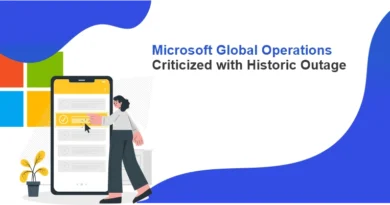Google Plans to Deprecate Third-Party Cookies in the Upcoming Year
For those doubtful about deprecation, January 4, 2024, is a date to remember. On this day, Google plans to launch a new feature in its browser named Tracking Protection. This feature, when turned on, will automatically block access to third-party cookies for websites.
Google Plans to Deprecate Third-Party Cookies in the Upcoming Year
Starting January 4, Chrome will implement Tracking Protection for a select 1% of users worldwide, chosen at random.
Users included in this initial rollout will be notified through a popup on the right side of the address bar in Chrome, whether on desktop or Android. This notification will display the message “Browse with more privacy” alongside an icon resembling an eye with a line through it.
Provided that the UK’s Competition and Markets Authority, responsible for overseeing Chrome’s Privacy Sandbox, doesn’t interrupt the process due to concerns about competition, Google is poised to fully eliminate third-party cookies in Chrome by the end of the following year.
Anthony Chavez, the Vice President of Product Management for the Privacy Sandbox, referred to this development as “a critical point in our Privacy Sandbox project,” in a blog post published on Thursday, where he announced the upcoming rollout.
Provided that the UK’s Competition and Markets Authority, responsible for overseeing Chrome’s Privacy Sandbox, doesn’t interrupt the process due to concerns about competition, Google is poised to fully eliminate third-party cookies in Chrome by the end of the following year.
Anthony Chavez, the Vice President of Product Management for the Privacy Sandbox, referred to this development as “a critical point in our Privacy Sandbox project,” in a blog post published on Thursday, where he announced the upcoming rollout.
It is Not a Test
In September, over three and a half years since its initial announcement to eliminate third-party cookies, Google made the Chrome Privacy Sandbox APIs widely available.
This allowed developers and ad tech companies to enhance their testing and integrate these APIs into their systems. However, the overall pace of testing, especially among buyers, has been sluggish.
A survey by Blis and Sapio Research in late October revealed that a significant majority (61%) of U.S. marketers and media planners had not yet begun testing the Chrome Privacy Sandbox, despite 98% expressing concerns about the loss of data tracking capabilities and the phase-out of third-party cookies.
Google remains optimistic about an uptick in testing, likely driven by the lack of alternatives. Victor Wong, Senior Director of Product for the Privacy Sandbox on Chrome and Android, indicated in a discussion with AdExchanger that the general availability of these APIs signals to companies the urgency to start their integration.
To facilitate smoother live testing, Google is gradually rolling out its Tracking Protection feature. According to Chavez, this phased approach allows developers to assess their readiness for a web environment without third-party cookies.
If a website experiences functionality issues during the initial phase targeting 1% of users, Chrome plans to provide an option to temporarily disable Tracking Protection and re-enable cookies. This measure aims to maintain a seamless browsing experience while sites address any technical issues before the complete removal of third-party cookies.
Limitations
There are voices within the industry who are critical of Google’s Privacy Sandbox initiative, preferring to see it disabled entirely.
In a recent article on The Current, The Trade Desk’s content marketing platform, the company’s Vice President of Product, Bill Simmons, expressed strong opposition to the Privacy Sandbox. He described it as a significant investment in a project that, in his view, could negatively impact advertisers and publishers on the open internet.
Simmons contends that the Privacy Sandbox could lead to lower advertising revenues and slower webpage loading times, while further solidifying Google’s dominance in the online advertising market.
He expressed disappointment with Google’s approach, suggesting that it prioritizes the company’s own interests over those of the wider advertising industry. Simmons argued that it is possible to protect user privacy without creating a system that impedes the ability of open internet publishers to generate revenue.



